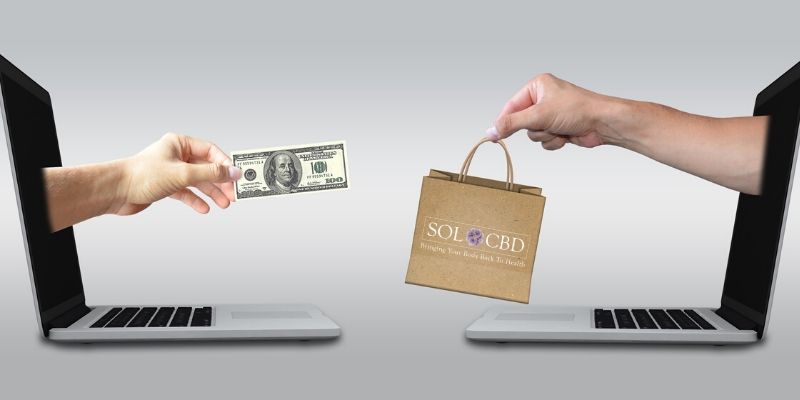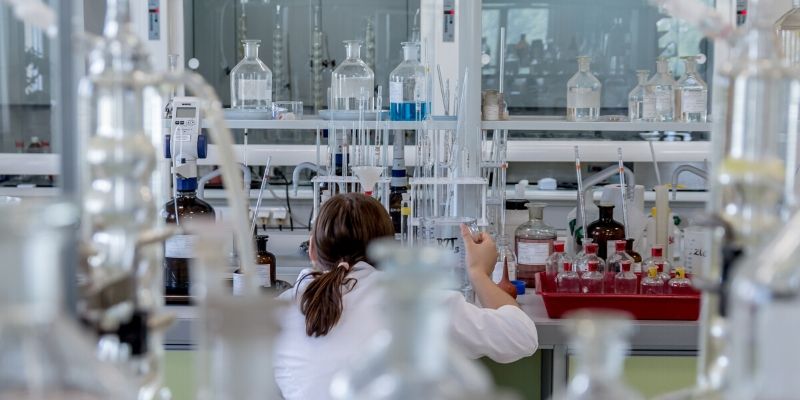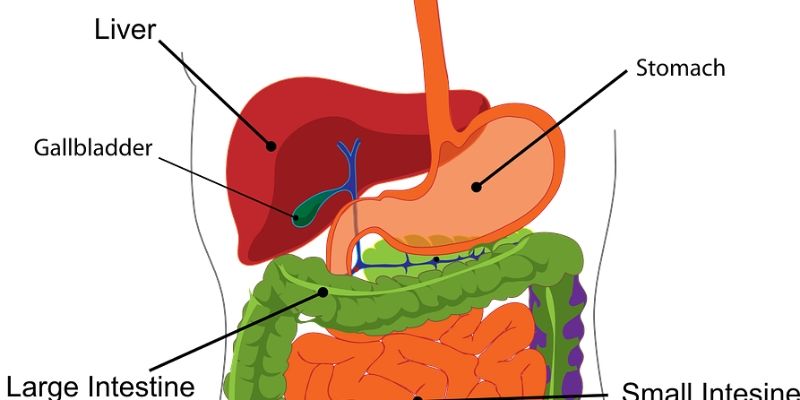Celebrities endorse it, the Church of England invests in it, and Willie Nelson soaks his coffee beans in it. It's been called "the chemical equivalent to Bitcoin in 2016," the "new avocado toast," and, based on a survey of internet search terms, it’s more popular than Jesus and Taylor Swift. (Doesn't beat porn, though. Or not yet, at least.) [1][2][3]
One journalist says CBD could stand for the “crazy buzz, dude,” and he is quite correct. ‘Cause crazily buzzing it is indeed, dude. [1]
At risk of becoming overly philosophical, we still want to ask—what's the business with CBD's popularity? And its alleged properties—does cannabidiol live up to these in real life?
Contents
1. Follow the Money...
1.1 CBD Sales—Boosting the Economy
1.2 Hemp Farming—Boosting the Agricultural Sector
2. Follow the Evidence...
2.1 CBD is Healthy
2.2 It Doesn't Make You Stoned
2.3 It Doesn't Give the Munchies
2.4 It's a Natural Alternative to Medicine
2.5 No Withdrawal Effects
2.6 Substantial Online Presence
3. Why Some Caution is Warranted, Though
3.1 Farming Hemp for CBD Isn't Easy
3.2 Side Effects
3.3 Research is Ongoing
3.4 Regulation is Still Irregular
3.5 Drug-Drug Interactions
3.6 Results Differ from Person to Person
4. Conclusion
Follow the Money...
Of course. If there were no money in it, CBD would be buzzing no more. The extent of its revenue potential is rather mind-blowing, though. Few products can boast a sales growth of 700 percent—for one year.

1.1 CBD Sales—Boosting the Economy
From the mid-year 2019 report of Brightfield's group (a cannabis research firm):
The Farm Bill brought immense change to the industrial hemp world, legalizing CBD and opening the floodgates for a brand new industry. While the start of 2019 was dominated by companies well-positioned to enter the space – vape companies, for example – Q2 gave way to large retailers like CVS and Walgreens, signaling to the rest of the country that CBD is going mainstream. 2019 is shaping up to be a massive year for CBD, leading to just over a $5 billion industry by end of year – a 706% increase over 2018. By 2023, Brightfield Group estimates that the total U.S. CBD market could reach $23.7 billion. [4]
This is welcome news for the U.S. economy, besieged as it is by the country's trade war with the world's other biggest economy—China. And the tension is likely to persist in 2020, according to CNN business analysts. [5]

1.2 Hemp Farming—Boosting the Agricultural Sector
The U.S.'s international relationship issues hit the agricultural market badly in the previous few years, with many farmers battling to break even. Hemp farming gave many a reason for optimism, though. (Hemp cannabis is one of the sources CBD is extracted from.)
In an interview with The New York Times last year, Andy Huston, a sixth-generation farmer in Illinois, admitted to battling a "struggling bottom line." He depended on a 17-acre plot of hemp to survive the crippling effects of poor soybean exports.
“Every time I put corn and soybeans in the ground, it’s a risk," he said, and he expressed hope that the rising popularity of hemp-based CBD will help him turn a profit. [6]
His plan to increase revenue seems to be an agriculturally popular trend, as Brightfield Group reported an estimated 285,000 acres of hemp that were planted nationwide last year. That compares with about 78,000 acres in 2018. They thought that about 87 percent of hemp grown in 2019 would be used for CBD. [4]

RELATED: The Greatest Victory for Hemp: The New Farm Bill Signed into Law!
So, it's retailer paradise, and the CBD boom is good for the economy. But why? What makes the compound so special?
There's confusion, as expressed by Jason DeLand, a New York advertising executive and a board member of Dosist. (Dosist is a disposable vape pen cannabis company in Santa Monica, California):
Right now, CBD is hot, everywhere and yet almost nobody understands it. [7]

Follow the Evidence...
Well, let's unpack the facts.
2.1 CBD is Healthy
The compound was discovered only in the '90s, but it quickly garnered a huge following—for good reason. Anecdotally, cannabidiol relieves anxiety and related stress, insomnia, inflammation, and chronic pain, to name a few.
It also alleviates epileptic seizures, and it has the first registered cannabis medication for epilepsy under its belt in the U.S. Also, research is investigating its potential as a drug-relapse treatment, for decreasing tremors and anxiety in Parkinson's patients, and as a treatment for several serious psychiatric disorders. [8] [9] [10]
And these are only the most recent reports and investigations.

RELATED: 8 CBD Benefits That You Should Consider
2.2 It Doesn't Make You Stoned
Though CBD is derived from cannabis hemp, it won't make you feel high. The feelings of euphoria and an altered mind are the work of cannabidiol's cousin, tetrahydrocannabinol (THC).
THC is also a cannabinoid, and it's also extracted from cannabis. It is also healthful and has many wonderful qualities. However, THC molecules bind to different receptors in the brain and central nervous system than CBD. Therefore, it affects the user differently.

2.3 It Doesn't Give the Munchies
Same as above. If taking a CBD product gives you an uncontrollable appetite, it probably contains a lot of THC. “The munchies” is not one of CBD's side effects.

RELATED: THC & CBD: The Differences You Need to Know
2.4 It's a Natural Alternative to Medicine
Anecdotally, this is a fact for many.
This is what one Reddit user reported on a CBD thread recently:
For me, I knew, I could always live without Seroquel for about 2 weeks without any neuroleptics so quitting Seroquel and taking CBD was easy for me as there was no imminent threat. If it wouldn't work out I could easily switch back to Seroquel and would not be harmed. But at the end of the 2 weeks I will get very restless and will know when I will have to take Seroquel again.
But, as I told you - it worked out! I'm off Seroquel and it just feels phantastic. I'm starting to lose weight, I sleep much less (and better) and what's really extreme - I'm so chilled and resting in myself, much much better as on Seroquel. On Seroquel I always was a little bit stressed, a little bit anxious, and my world was still a bit hostile. So, I felt like the psychosis was put reliably asleep - but always able to lurk out of its dark area of my mind for some short times. [11]
Encouraging, but not advisable to attempt without the consent of a medical professional, however.

RELATED: Here's Why CBD Is Inflammation’s Worst Enemy
2.5 No Withdrawal Effects
If you have to stop taking CBD for whatever reason, you are very unlikely to experience withdrawal symptoms.

This anecdotal report from a user on Reddit:
I just started to notice even 24 hours after taking it (CBD) I didn’t have intense anxiety or fear like I usually do. Its like my emotions were a roller coaster before and now they are more even and I have control over them. I’ll start to have a bad thought and I can squash it quickly before it would get out of control. It could very well be placebo but it’s interesting if I go a week without taking my CBD I start to feel a little anxious again. Start taking in the eve and boom- back to being in control. [12]
2.6 Substantial Online Presence
Sales of CBD tinctures and CBD oils pre-2019 were mostly online. The virtual marketplace is huge, and this has its benefits.
Apart from the obvious convenience of ordering the product from the comfort of home, CBD's online presence holds another plus. Consumers have to vet sellers carefully, since manufacturing is still largely unregulated. This means that when you know what to look out for, one glance at a vendor's online marketing spiel can give you at least an impression of the product's reliability.
Keep your eyes open for these:
- Does the manufacturer make any unlawful health claims in their marketing material? The FDA outlaws indefensible health claims such as cures for everything under the sun. If the CBD oil producer cannot respect the law and stick to regulations, can they be trusted?
- Customer service. Is it easy to contact the merchandiser, meaning are their contact details clearly displayed? And if you did contact them, are you still waiting for a reply or were you swiftly assisted? Producers who are proud of their products, especially in this still-developing market, will be more likely to give good customer service. The sketchy ones are more likely to dodge queries or make themselves unreachable.
- Do they have their products tested and is the lab report easily accessible? A trustworthy producer of CBD oil products will readily share a third-party laboratory report of the product contents. This will clearly show what you get for your buck.

Why Some Caution is Warranted, Though
CBD seems to be everything but a passing craze, and that's a good thing. But it's not all roses and romance, just like all things in life are not. Here are some of the challenges the U.S. hemp-CBD market is facing.
3.1 Hemp for CBD is Not That Easy to Farm
While the opportunities and potential for hemp crops are exciting, it's not all that simple. As reported to NY Times—growing hemp for CBD can be challenging. For instance, there's no federal approval for any pesticides for hemp yet, so fields need to be tended by hand. This pushes up the cost of labor.
In addition, male cannabis plants have to be culled because a pollinated female will stop producing CBD. Hermaphrodite plants, which develop both male and female flowers, self-pollinate and also need to be removed.
One couple from a hemp farm in Colchester, Illinois—Ann Knowles and Will Terrill—struggled with their first crop because of cheap hemp seeds with many dud plants. Nearly half of the crop couldn't be used.
Another farmer, Andrew Smith, had the same problem. “Hemp is a wild card,” he said to the NY Times. “If you were going to spend $20,000, you had to be willing to lose $20,000.” [6]

3.2 Side Effects
CBD is generally considered safe for use. It is, strictly speaking, not psychotropic, but that doesn't mean that there's no effect on your mental state. Especially in very high doses, it can cause these side effects:
- feelings of drowsiness and somnolence
- gastrointestinal upset (though this disappears with regular use)
- dry mouth and thirst
- nausea (rare)
- fatigue
- irritability (rare)

RELATED: The Known Side Effects of Cannabidiol
3.3 Research is Ongoing
The scientific evidence is encouraging, but it’s still limited. This includes long-term safety for pregnant women and babies.

3.4 Regulation is Still Irregular
Hemp was legalized only at the end of 2018, so the market is still developing. This means that product regulation is in the same developmental stage.
The U.S. Food and Drug Administration (FDA) takes a strong position against using CBD medicinally, unless under the supervision of a doctor. As mentioned, it also has strict guidelines regarding health claims on products.
The market is, unfortunately, still burdened with products that don't live up to their claims.
A private investigation into the CBD content of certain products was launched a while ago. A laboratory tested each and the results were shocking:
...only about half of the products tested contained within 20% of the CBD that was labeled. Among those that failed, all four of the following CBD water products tested below 20%, with three out of four containing absolutely no CBD.
The products claimed to contain emulsified CBD, which was affected with the use of so-called nanotechnological processes. Because it is molecular technology, it would make the CBD undetectable—this was the manufacturers' defense. But an expert criticized both their assertion and science:
A CBD molecule is a CBD molecule. If you break it up into smaller fragments, it is no longer CBD and will not act like CBD. Adding ‘nano’ in front of the word does not change the molecule itself. Even if a beverage is presented as a nanoemulsion, when the lab adds a solvent as part of their extraction process, this causes the emulsion to break and anything encapsulated in the nanoemulsion will be visible to the lab’s instruments.” [13]

3.5 Drug-Drug Interactions
Because of the way CBD is metabolized in the body, it can potentially interact with certain liver-mediated medicines. Though it occurs very rarely, it is therefore possible for CBD to affect these medicines' potency and efficacy this way.

3.6 Results Differ from Person to Person
Because CBD is still being researched, meaning that no formal guidelines exist yet, determining the dose for efficacy is left to the consumer. On top of that are certain variables that can affect the results, such as a person's weight and personal metabolism.
This means that everything from obtaining a quality product to taking the right dose for you is still pretty much left to the consumer. However, the early adopters and CBD supporters among doctors and medical professionals can assist with recommendations and advice. It would be best to search for such a person close to you, especially if you're really ill.

Conclusion
CBD oil benefits are undeniable, and growing hemp for CBD is big news agriculturally. It's unlikely to be just a fad, but we can definitely expect more product regulation in the future. The way this will affect the market is debatable.
Sources:
- https://www.forbes.com/sites/javierhasse/2019/11/01/cbd-popularity/#224e809154e7
- https://abcnews.go.com/International/holy-smoke-church-england-backs-medicinal-cannabis-investments/story?id=63604721
- https://tasteofcountry.com/willie-nelson-willies-remedy-cbd-oil-cannabis-products/
- https://global-uploads.webflow.com/596691afde3c5856d866ae50/5d25fbbc528d2e6c4abf56a3_US%20CBD%20Market%20Report_July2019.pdf
- https://edition.cnn.com/2020/01/15/business/trade-risks-2020/index.html
- https://www.nytimes.com/2019/10/06/us/hemp-farming-trade-war.html
- https://www.nytimes.com/2018/10/27/style/cbd-benefits.html
- https://www.nature.com/articles/s41386-018-0218-2.pdf?origin=ppub
- https://www.ncbi.nlm.nih.gov/pubmed/31909680
- https://www.tandfonline.com/doi/abs/10.1080/15622975.2017.1285049
- https://www.reddit.com/r/CBD/comments/enr9az/replaced_seroquel_with_cbd_and_it_works/
- https://www.reddit.com/r/CBD/comments/eoedmg/has_anyone_used_cbd_to_get_off_of_seroquel/
- https://www.ganjapreneur.com/how-cbd-nanotechnology-misleads-consumers/




























